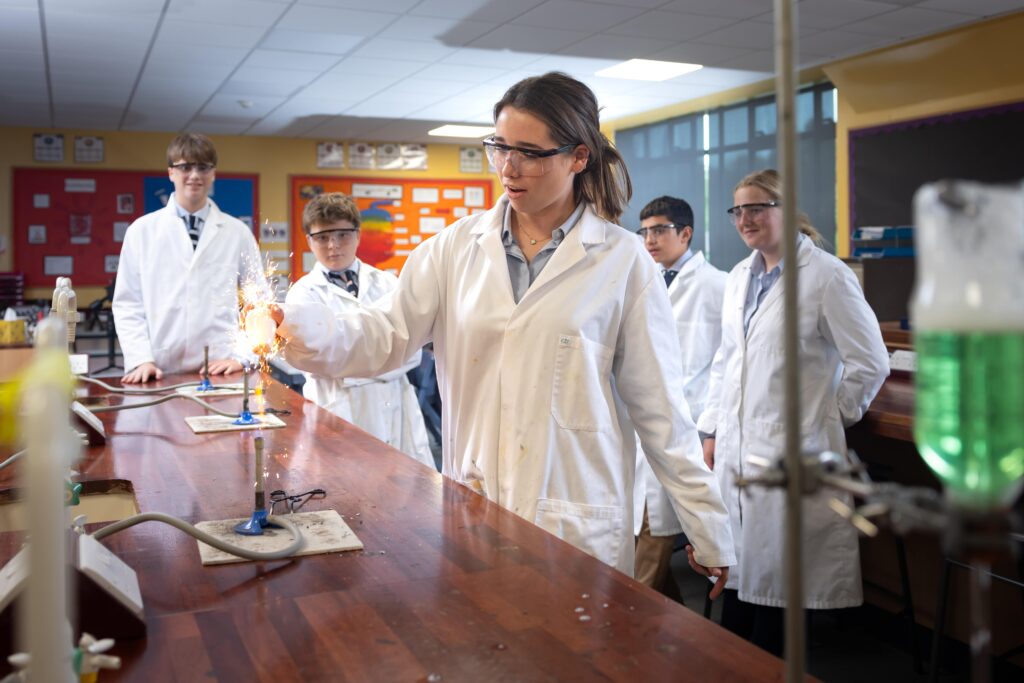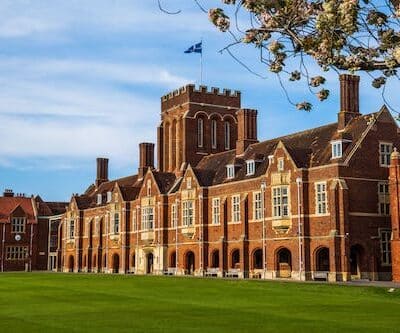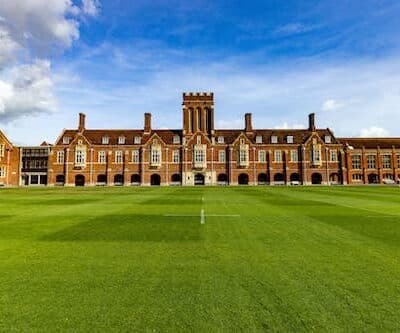Experimenting, observing and interpreting the building blocks of our world
From the moment we are born, we are surrounded by chemistry: in the food we eat, the air we breathe and the clothes we wear.

Without chemical science, we would have no plastics, no synthetic fibres and no fuels for cars or planes. Many lives would be lost without the chemical technology that has brought us medicines. In the future, chemistry-related scientists will help to provide the answers to global problems such as the depletion of non-renewable fuels.
We will also depend upon biochemists and geneticists to engineer new therapies. Perhaps one or two pupils will emulate former Old Eastbournian and Nobel prizewinner Professor Frederick Soddy by being at the forefront of modern science in years to come.
Chemistry is a practical subject and, at Eastbourne College, a large emphasis is placed on learning through observation and interpretation of experimental work. By encouraging pupils to learn through experiment and their own experience we aim to inform, stimulate and challenge pupils of all abilities and to provide them with opportunities to improve skills, both mental and practical, that will be invaluable to them in everyday life.
Department Overview
The Chemistry Department at Eastbourne College enjoys state-of-the-art facilities and is proud to deliver this traditional subject in a most modern and up-to-date fashion from the top floor of the College’s impressive science centre.
At GCSE all pupils study for either a GCSE in chemistry or the trilogy GCSE science qualification. Over the last six years, the Chemistry Department has achieved an average of 97 per cent A*- A (or equivalent 9-7) at GCSE.
Typically, 30-40 sixth form pupils opt for chemistry at A-level, and each year several candidates studying A-level chemistry have been awarded places at Cambridge or Oxford with many others going onto to study science-based courses at other top universities including Bristol, Durham and Imperial College. The department’s A-level results are excellent: on average, over the last seven years, over two in four pupils achieve A* or A grades.
Beyond the Classroom
The Chemistry Department is keen to take part in national competitions. Every year, pupils participate in the Chemistry Olympiad, the Lower Sixth Cambridge Chemistry Challenge and the Royal Society of Chemistry Top of the Bench Competition.

“The chemists are a strange class of mortals, impelled by an almost maniacal impulse to seek their pleasures among smoke and vapour, soot and flames, poisons and poverty – yet among all these evils, I seem to live so sweetly that I would rather die than change places with the King of Persia.”








